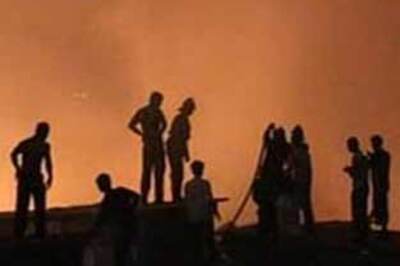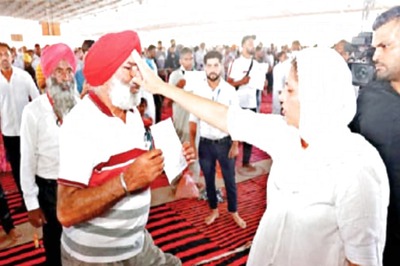
views
New Delhi: The Supreme Court on Tuesday said a constitution bench would in May hear the question whether the children of illegal migrants born here can avail the benefit of citizenship under the existing law.
A bench headed by Chief Justice J S Khehar said that four constitution benches would sit during the summer vacations, scheduled from May 11 to July 1, to hear contentious issues, including triple talaq, constitutional validity of Aadhaar and status of children of illegal Bangladeshi migrants to Assam.
Besides, the larger bench would also deal with the issue of constitutional validity of section 6A of the Citizenship Act with regard to the cut-off date for awarding citizenship to the Bangladeshi migrants.
"We will have four constitution bench (during summer vacations). This matter will be one of them," the bench, also comprising Justices D Y Chandrachud and S K Kaul, said. At the outset, the bench told the petitioners, "You do not seem to be serious. You are taking it very casually". The parties in the case contended before the bench that they were ready to argue the matter during the vacation. "Counsel for the parties agrees that this matter be posted for hearing in the vacations. Let it be fixed for May 11," the bench said.
In July 2015, another bench of the apex court had referred the question for adjudication by a constitutional bench.
"We are referring to the Constitution bench the question as to the whether the children of illegal migrants would get the benefit of Section 3 of the Citizenship Act, as amended," the bench headed by Justice Ranjan Gogoi had said.
The bench, which was hearing various pleas arising out of its verdict on PILs on influx of illegal Bangladeshi migrants to Assam, had decided to keep monitoring the implementation of its directions.
It had earlier passed a slew of directions, including an order to the Centre to complete the fencing work along the India-Bangladesh border within three months to check cross-border influx of illegal Bangladesh nationals into Assam and streamline the process to deport them back.




















Comments
0 comment